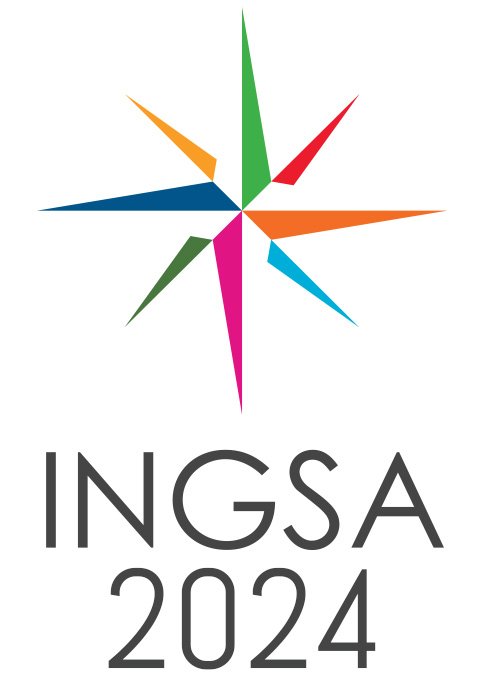
DAY 2 : INGSA AGENDA

High-level address and closing plenary
The closing plenary will gather up the key themes to consider (and anticipate) how the structures, cultures, and practices of science advisory ecosystems might adapt to address converging challenges at an increasing pace.

GLOBAL DEVELOPMENT NETWORK AWARDS CEREMONY
The Global Development Awards Competition is an innovative award scheme administered by the Global Development Network, funded under the Policy and Human Resources Development Fund trust fund managed by the World Bank, and generously supported by the Ministry of Finance, Government of Japan.
At INGSA2024, GDN is excited to be announcing the winners of the 2023 Japanese Award for Outstanding Research on Development Award and the Japanese Award for Most Innovative Development Project.
The winners’ selection sessions will be held online, before the INGSA conference. Below are the links to register for the online events (GDN coordinated event):
ORD session - 16th April, 11 am UTC - Registration link: bit.ly/GDAC2023_ORD
MIDP session - 17th April, 11 am UTC - Registration link: bit.ly/GDAC2023_MIDP
For more information about these awards see: https://www.gdn.int/annual-programs/global-development-awards-competition

P4:4 Advances in Capability Development for Science Advice - Frameworks and Tools
PARALLEL SESSION:
This session will aim at the understanding of scientific advice to governments, developing a common view of skills and evidence-quality criteria to support implementation, and the relationship between capabilities (skills) development and institutional development and innovation.

P4.3- Disruptive technologies: Impact and leadership from Africa
PARALLEL SESSION:
The panel will aim to look into these technological advances and discuss with actors for change in different fields of expertise inside and outside of the African continent to collect their perspectives for the next step. How south-south and south-north collaboration will unfold?

P4.2- systematic Institutional Innovation: Creating Better Conditions for Transformative Evidence-Informed Policy-Making
PARALLEL SESSION:
This session will build off of the work of the European Commission which is co-creating national ‘roadmaps’ between national STI and public policy systems to better address sustainable development and societal transformation.

P4.1- Anticipatory science diplomacy and disruptive technology - towards renewed multilateralism
PARALLEL SESSION:
This session will address the need for anticipatory science diplomacy and policy advice, how science diplomacy is being transformed and ensuring inclusion and participation of underrepresented nations, and communities.

SATELLITE EVENT: Unlocking solutions through transformational science:outlooks for Africa
We extend a warm invitation to join our focused panel session, jointly led by the African Academy of Sciences and the Frontiers Research Foundation. This session aims to provide the platform for dialogue and proposed action to revolutionize the modus operandi of research in African institutions through addressing the challenges of the academic community, providing the foundation of driving systemic change. The topic of discussion will be around ‘Planetary Boundary Science,’ its paradigm-shifting potentials, and how to overcome conventional siloes and obstacles within academia that hinder such transformative initiatives.
The discussion will also explore what fuels these radical changes in research and how advances in this vein are vital for Africa's transition towards a climate-resilient future. The session will spotlight case studies demonstrating these changes and elucidate the role that open access to scientific literature plays in publicizing and normalizing such transformative research.
The panel offers a platform for African scientists, policy makers in science and technology, and NGOs, who are at the forefront of these changes to engage in honest, constructive discourse. It seeks to navigate the challenges endemic in the field and demonstrate the value that initiatives like the Frontiers Planet Prize hold in recognizing and rewarding paradigm-shifting research. This confluence of esteemed academics, policymakers, and NGOs aspires to chart a viable path, empowering the African research community in forging its evolutionary journey towards environmental resilience.
Panelists:
● Lise Korsten – President of the African Academy of Sciences
● Remi Quiron – Chief Scientist of Quebec
● Daan Du Toit – Deputy Director General: International Cooperation and Resources
● Eugene Mutimura- Executive Secretary and Member of the Council of the National Council of Science and Technology of Rwanda
● Andrea Hinwood, Chief Scientist, UN Environment Programme (UNEP)

P3.4 - Skills for Transformation - Training the Next Generation of Experts at the Interfaces
PARALLEL SESSION:
This panel aims to explore the implications of ambitious system-change thinking for the development of skills in science advice.

P3.3- Evidence for Science Advice and Diplomacy: Considering Quality, Equity, and Diversity of Sources
As the challenges we face become more complex and interacting, we are more aware than ever of the limits of so-called ‘technical advice.’ Expanding the sources of evidence has emerged as one response to addressing the structural inequalities that can be perpetuated by conventional methodologies of evidence formulation. Moreover, evidence pluralism can help position science advice to play a central role in addressing inequality for more just transitions. What (and whose) evidence counts, when, and under what conditions?

P3.2 Institutional Development/Mapping - From Mechanisms to Ecosystems
As policy issues become increasingly complex and interconnected and politics ever more polarised, robust institutions that ensure that scientific knowledge is mobilised, synthesised, translated, and integrated into the policy-making process become increasingly relevant. To inform and structure the debates about capacity-building in support of robust, interconnected science-for-policy advisory bodies, the notion of “ecosystems” of science for policy have gained significant momentum.

P3.1 Science Advice in the Multi-lateral System - emerging challenges and innovative solutions
Science is increasingly recognised as a cornerstone of multilateral decision-making. The UN Secretary-General in his report Our Common Agenda identifies science as one key global public good, calls for “all policy and budget decisions […] to be backed by science and expertise” and science is identified as part of the “quintet of change” for a renewed multilateral system, especially as it can support foresight and a better understanding of the socio-economic drivers of sustainable transformations.

High-level plenary & panel
Day 2 will kick off with a look at what is meant by ‘expanded evidence’ to underpin societal transformations. From theory to practice, our esteemed panelists will share their thoughts and experiences about broadening the sources of evidence.


